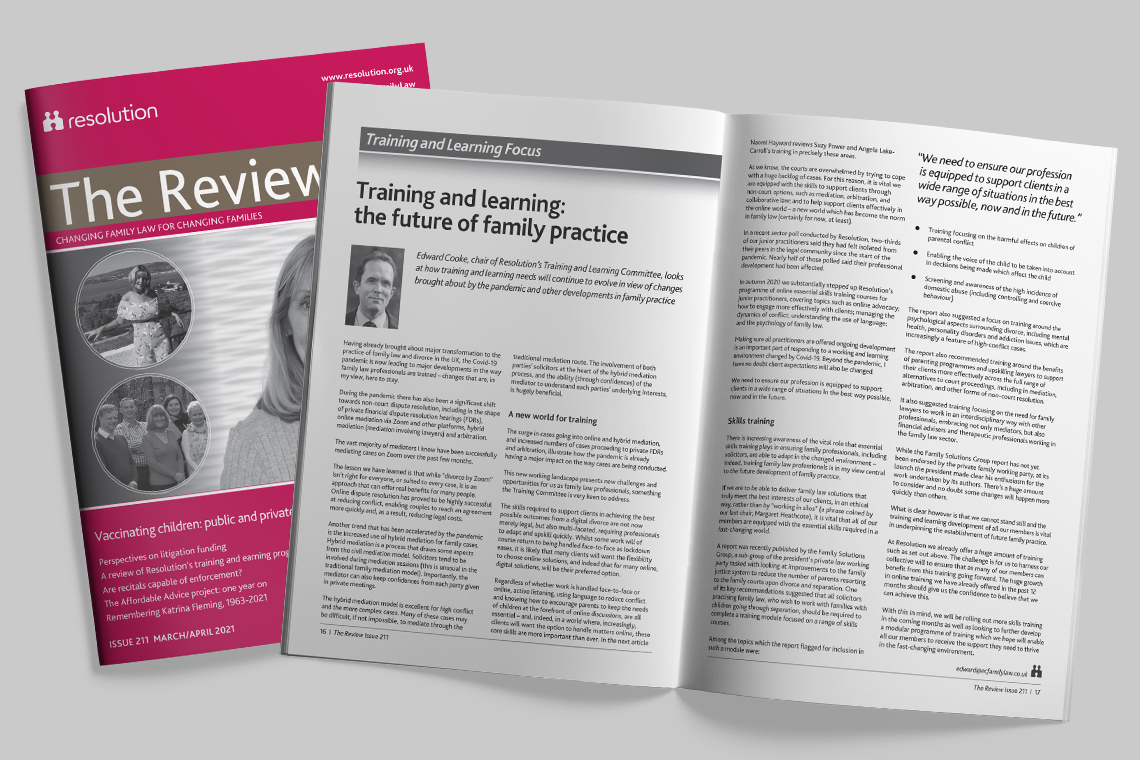Training and learning: The future of family practice
26 May 2021

Edward Cooke is a regular contributor to Resolution’s The Review and in his latest piece he explores the changing landscape of training and learning needs for the legal professional, arising from not only the pandemic but also other developments in family practice.
Edward explores the enduring shift to ‘divorce by Zoom’, recognising that whilst it is not right for everyone, or suited to every case, it is an approach that can offer real benefits for many people and is therefore here to stay.
Hybrid mediation is another trend that has been accelerated by the pandemic, Edward observes. Whilst the process of involving solicitors in the mediation sessions is not the traditional family mediation model, this new hybrid mediation model is excellent for high conflict and complex cases.
A changing legal landscape needs a fresh new training and learning approach
As Chair of Resolution’s Training and Learning Committee, Edward Cooke and the Resolution team have a keen eye on the challenges and opportunities this new working landscape has precipitated.
The article outlines that the skills required to support clients in achieving the best possible outcomes from a digital divorce are not now merely legal, but also multi-faceted, requiring professionals to adapt and upskill quickly. Furthermore, core skills of active listening, using language to reduce conflict and knowing how to encourage parents to keep the needs of children are more important than ever. It is also vital that solicitors are equipped with the skills to support clients through non-court options, such as mediation, arbitration, and collaborative law.
Edward showcases Resolution’s approach to tackling skills training throughout the profession, helping them to adapt to and develop the essential skills required in a fast-changing world. There is also a focus on Resolution’s response to the recommendations arising from the recent report published by the Family Solutions Group around improvements to the family justice system, including skills training, and recognising the acute challenge junior professionals have faced during the pandemic.
Read the full article here


